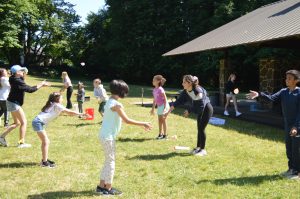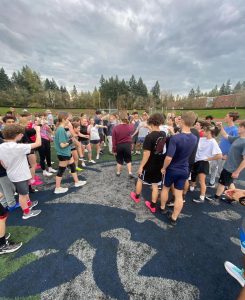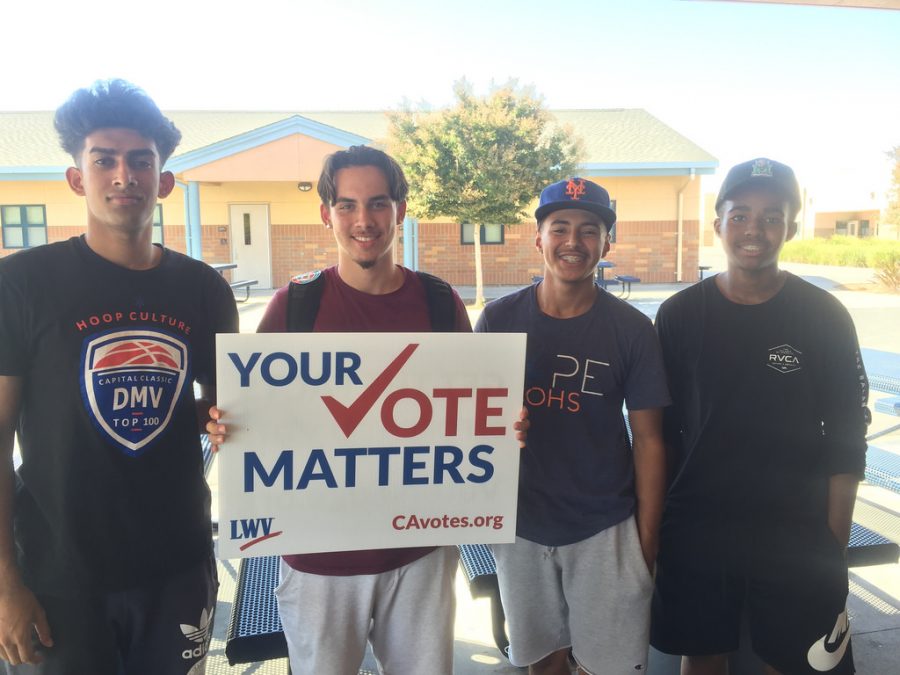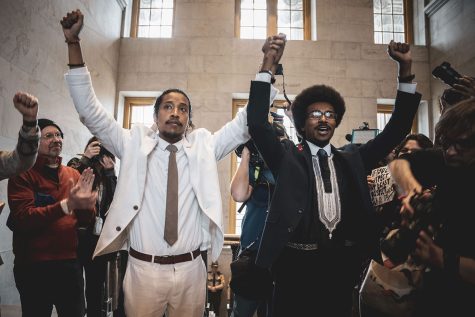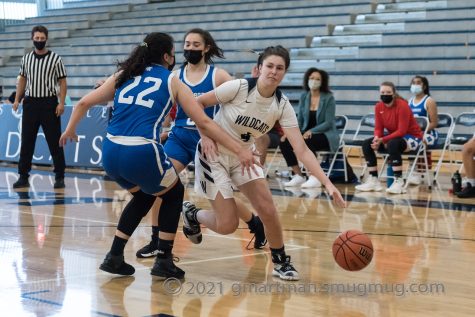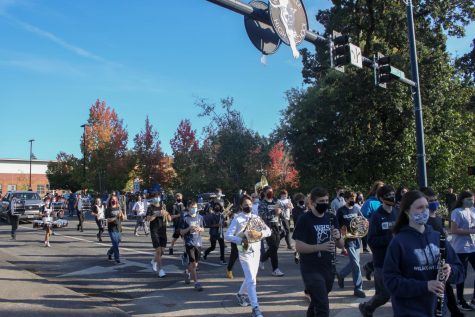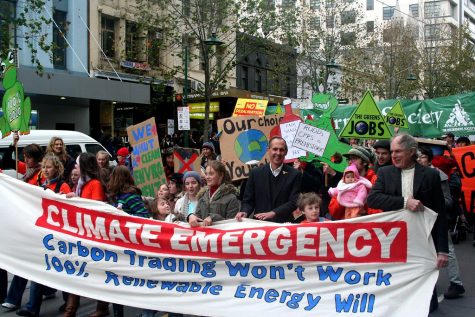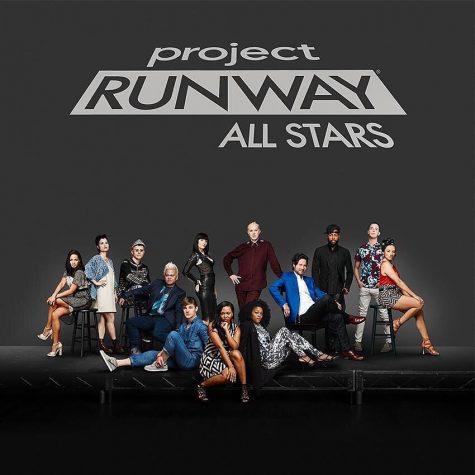Students make a difference in elections across the country
Photo by League of Women Voters, CA
These high school student have registered to vote.
Being eighteen years old in the United States legally allows you to vote. While this age comes with the legality of being an adult, many still view themselves as children. 18 year olds still attend high school, are not able to legally drink, and a large number sill live at home. The bridge between childhood and adulthood poses a difficult question for many young voters – will my voice be heard?
November 7th was a day filled with decisions. All across the US, voters chose governors and mayors, voted on bonds, and many other ballot measures. In Oregon, a bond for PCC and a bond for Hillsboro schools passed. Voters in the PCC service area will help fund repairs, renovations and modernizations of the college. The Hillsboro School District Board of Directors will receive $408 million for two new elementary schools as well as building renovations, repairs, and safety and security upgrades district-wide, KGW reports. Young voters were encouraged to turn out and vote on these issues.
Young voter turnout has always been an issue the US has faced. Approximately 50% of eligible young people—about 24 million youth, ages 18-29—voted in the 2016 general election, CircleYouth.org reports. This was a similar turnout rate to the one calculated in 2012 by Circle Youth. Since only about 50% of young adults voted, that means that only 50% of young voices were heard. One half of voting-eligible citizens were able to have their opinions influence the outcome.
55% of young people voted for Hillary Clinton, while 37% supported Donald Trump. The remaining 8% of youth voted for a third-party candidate or did not cast a ballot for president. There were significant differences in youth vote choice by race, gender, educational attainment, and other factors, Circle Youth says.
This third party vote is significant for youth; a third party vote means that young adults do not see themselves represented in a major party. In recent times, third party candidates have never come close to winning, and this may be a cause of minimal voter turnout. If youth don’t feel as if they are being represented, they may resign to even casting a vote.
Voting is a right all eligible citizens should take advantage of. Voicing your opinion allows you to have a voice in your federal, state, and local governments. Being involved in your government doesn’t only affect you; it affects future generations to come. Making sure you have your opinion heard is something that will help the entire country, and ensure that future citizens live in the country you envision.


